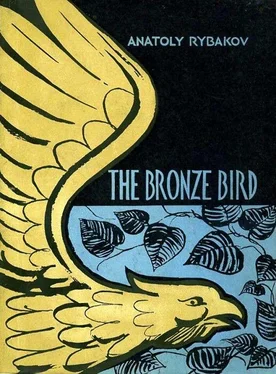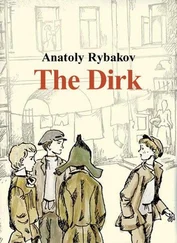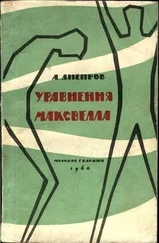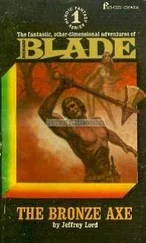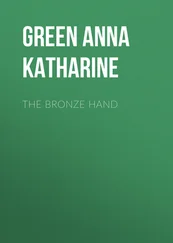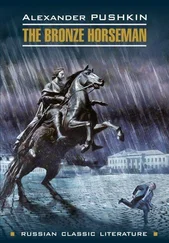Anatoly Rybakov - THE BRONZE BIRD
Здесь есть возможность читать онлайн «Anatoly Rybakov - THE BRONZE BIRD» весь текст электронной книги совершенно бесплатно (целиком полную версию без сокращений). В некоторых случаях можно слушать аудио, скачать через торрент в формате fb2 и присутствует краткое содержание. Город: Moscow, Год выпуска: 1956, Издательство: Foreign Languages Publishing House, Жанр: Детские приключения, Детектив, Исторические приключения, на английском языке. Описание произведения, (предисловие) а так же отзывы посетителей доступны на портале библиотеки ЛибКат.
- Название:THE BRONZE BIRD
- Автор:
- Издательство:Foreign Languages Publishing House
- Жанр:
- Год:1956
- Город:Moscow
- ISBN:нет данных
- Рейтинг книги:5 / 5. Голосов: 1
-
Избранное:Добавить в избранное
- Отзывы:
-
Ваша оценка:
- 100
- 1
- 2
- 3
- 4
- 5
THE BRONZE BIRD: краткое содержание, описание и аннотация
Предлагаем к чтению аннотацию, описание, краткое содержание или предисловие (зависит от того, что написал сам автор книги «THE BRONZE BIRD»). Если вы не нашли необходимую информацию о книге — напишите в комментариях, мы постараемся отыскать её.
THE BRONZE BIRD — читать онлайн бесплатно полную книгу (весь текст) целиком
Ниже представлен текст книги, разбитый по страницам. Система сохранения места последней прочитанной страницы, позволяет с удобством читать онлайн бесплатно книгу «THE BRONZE BIRD», без необходимости каждый раз заново искать на чём Вы остановились. Поставьте закладку, и сможете в любой момент перейти на страницу, на которой закончили чтение.
Интервал:
Закладка:
"Yes, yes, go on with the story."
"When Genka saw what he'd done, he naturally lost his nerve and said he had made it all up. I, too, tried to persuade her that Genka had meant it as a joke, saying that if Igor had really run away we wouldn't be asking for his share of the supplies. Between us we managed to calm the old lady down. But I'm sure she'll tell Igor's mother. You'll see!"
"You've got no sense of responsibility, Genka," Misha said with exasperation. "You can't be trusted with anything. As though it were not enough that Igor and Seva have run away because of you, you had to go and get their parents worried. And you were warned not to do it! This is the last straw! We'll first find Igor and Seva and then demote you."
"That's not fair," Genka grumbled plaintively. "I am a Komsomol and I've been appointed..."
"All the more that you are a Komsomol. It's disgraceful! You make a mess of everything you're asked to do."
Chapter 13
THE ANARCHIST
Misha was sure the fugitives were somewhere along the river, for now there could no longer be any doubt that they had gone on Senka's raft. Downstream, naturally, for there was no sense in going against the current.
The problem now was to get a raft or a boat. There was no raft available and even if there were, a raft was too slow. The alternative was to find a boat. They could get one at the boat station, but the boatman would be sure to ask a price they could not pay.
Some of the people in the village had boats, but it was useless to ask them. One of the boats had caught Misha's eye. Although a pair-oar affair and absurdly painted, it was not very big and was fast and light. It belonged to a strange person, an artist, who lived in the village with his mother and called himself an anarchist. Misha did not know what his anarchism consisted in. He had seen him once or twice in the street and on those occasions the artist had been drunk and had shouted some unintelligible words. He was a short, blue-eyed man of about thirty, always unshaven and always in a state of intoxication.
Longshanks, Misha felt, was the only person who could help get the boat from the artist. Misha decided to see if he could enlist Long-shanks' help especially as he had made up his mind to take him along in the search for Igor and Seva. No one knew the river, the woods and the surrounding villages better than he. Besides, Longshanks would want to go, for they would pass Khalzin Meadow and nobody could tell what might happen: they might even get on the track of Kuzmin's murderers. If they did, Nikolai would be released. That argument won Longshanks over. He agreed to accompany Misha and go to the anarchist to ask for the loan of the boat.
"His name is Kondraty Stepanovich and he is an artist," Longshanks said. "He has any number of pictures and his whole hut is covered with paintings. If he's tight he won't give us a chance to say a word, if he's got a hangover-he'll chase us away, but if he's sober- there is a' chance he'll let us have the boat."
The first thing that struck Misha in the hut of the village artist was the mixed smell of sheepskins, drying oil, oil paints, home-made vodka, pickle, and cabbage soup which had turned sour. The hut was quite roomy, but it was full of things peasants usually did not have: an easel, boxes of paint, and ancient furniture that had probably been brought from Moscow.
But the most amazing thing was that the hut itself and all the objects in it were painted so fantastically that it was bewildering.
The walls were of different colours: one was green, another was yellow, the third blue and it was hard to define the colour of the fourth. The stove was covered with multi-coloured little squares, rhombuses and triangles. The floors were painted yellow, and the ceiling-red. The benches along the walls were brown. The window-frames were white. Even the oven prongs were painted in different colours, while the poker had a coat of red paint. The city furniture alone retained its natural colour, but it was evident that it too would come in for a taste of the artist's enterprising brush.
The artist himself was sitting on a bench and whittling something with an air of concentration. His hair was thinning at the temples but it was long at the back of his head and hung in red shaggy locks on the dandruff-covered collar of his velveteen Tolstoyan shirt. The shirt was quite threadbare and was smeared with paint of every conceivable colour. Around his neck was a dirty cloth tied in a bow. When the boys entered he raised his dull, blue eyes for a moment and then resumed his work.
"We've come to see you, Kondraty Stepanovich," Longshanks said.
"What for?" the artist demanded in a low, rumbling bass which was unexpected in such a small and puny-looking man.
"This is the leader of the troop," Longshanks said, pointing at Misha.
The artist again raised his head. His eyes stopped on Misha's Komsomol badge.
"A Komsomol?"
"Yes," Misha replied.
"Do you know who I am?"
"An artist."
"I'm talking about my political convictions."
"I don't know," Misha replied, doing his best to stifle his laughter.
"By conviction I am an anarchist-maximalist," Kondraty Stepanovich declared pompously.
"We wanted to ask you to lend us your boat for two days," Misha said.
"Anarchist-maximalists," Kondraty Stepanovich said, "do not recognize authority. We are neutral so far as Soviet rule is concerned. We do not believe in experiments, but we do not hinder them. So that's that." He had nothing more to add about his political views, so he repeated, "That's that," and returned to his whittling.
"But will you let us have the boat?" Misha asked.
"What do you want it for?"
"We have to go downriver," Misha replied evasively.
"Anarchists disapprove of property," Kondraty Stepanovich said floridly. "What made you think the boat was mine?"
"That is what people say," Misha replied with a shrug.
"They don't know what they're talking about. They are saying that because they are so used to property. Everything belongs to the community."
"Does that mean we may take the boat?"
"Take it," Kondraty Stepanovich said without looking up.
"Thank you!" Misha cried joyfully. "We'll return it intact."
"Ask for the key," Longshanks whispered, nudging Misha.
"Please may we have the key to the boat," Misha said.
"The key? Now that's a different matter."
"Why?" Misha asked worriedly, beginning to realize that it was not so simple to get the boat as it had seemed at first.
"The key is my private property."
"I don't understand."
"The boat is common property and you may use it, but the key belongs to me and I am in my rights if I choose not to give it to you."
"Then what are we to do? Break the lock?"
"That would be ex-pro-pri-ation!" Kondraty Stepanovich said, shaking his head sadly. "It must be done in public."
"We'll have the whole troop down as witnesses," Misha said quickly.
"The militia will arrest you." '
"But you don't recognize the militia," Misha noted.
"We don't recognize them," the artist said in a cheerless tone "but they recognize us."
"If we had the money, we'd pay you for the boat," Misha admitted.
Kondraty Stepanovich energetically shook his head.
"Anarchist-maximalists do not recognize bank-notes." After a pause, he added, "But barter would be all right."
"Barter?"
"Yes. I shall give you the key and in return you will give me your contract to paint the club."
"What contract?" Misha asked in surprise.
"For the club you are fixing up. It has to be painted. Well, I shall do that."
"But we're not getting paid for what we're doing."
"A pity." The artist's head drooped. "Labour must be remunerated."
Читать дальшеИнтервал:
Закладка:
Похожие книги на «THE BRONZE BIRD»
Представляем Вашему вниманию похожие книги на «THE BRONZE BIRD» списком для выбора. Мы отобрали схожую по названию и смыслу литературу в надежде предоставить читателям больше вариантов отыскать новые, интересные, ещё непрочитанные произведения.
Обсуждение, отзывы о книге «THE BRONZE BIRD» и просто собственные мнения читателей. Оставьте ваши комментарии, напишите, что Вы думаете о произведении, его смысле или главных героях. Укажите что конкретно понравилось, а что нет, и почему Вы так считаете.
